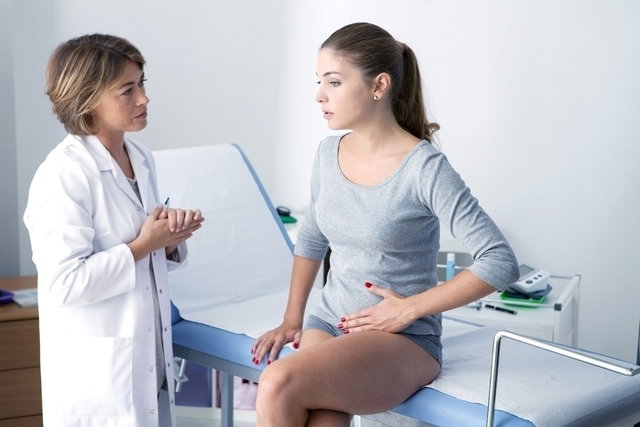Postpartum menstruation varies depending on whether the woman is breastfeeding or not, as breastfeeding causes spikes in the hormone prolactin, which can inhibit ovulation and, consequently, delay the first menstruation.
Thus, if a woman breastfeeds exclusively every day for up to 6 months after giving birth, she does not menstruate, this period being known as lactational amenorrhea. However, when breastfeeding stops being exclusive, which happens around 6 months, or when it stops completely around 2 years of age, menstruation may decrease.
Despite this, it is also possible for a woman to menstruate a few months after giving birth, even if she is exclusively breastfeeding, as hormonal changes can vary from woman to woman, so menstruation can occur independently of breastfeeding.
In the first 2 to 3 days after giving birth until around the 3rd week, it is normal for a woman to bleed, however, this bleeding is not considered menstruation, as it does not contain any eggs and is due to the exit of the structures that line the uterus, as well as remains of the placenta, being scientifically called lochia. Learn more about postpartum bleeding and when to worry.

How long after giving birth does menstruation come?
The first menstruation after childbirth depends on how the woman breastfeeds the baby, since if breastfeeding is exclusive, there are spikes in the hormone prolactin, responsible for milk production, which can inhibit ovulation and result in delay. in menstruation.
However, if breastfeeding is mixed, that is, if the woman breastfeeds and gives the bottle, menstruation may decrease because the baby’s stimulation of milk production is no longer regular, altering the prolactin peak. However, as hormonal changes vary from woman to woman, it is possible for menstruation to occur independently of breastfeeding, and may occur a few months after giving birth.
In general, the onset of menstruation depends on how the baby is fed, with the most common times being:
Is it possible to menstruate while breastfeeding?
In general, the longer the baby breastfeeds, the further away the first menstruation will be after birth, but as soon as the baby starts to reduce feedings, it is possible to ovulate, with menstruation coming soon after. However, this is not a rule, because hormonal levels can vary from woman to woman, so you can start menstruating again even if the baby is fed through exclusive breastfeeding, although infrequent.
A popular belief is that menstruation reduces the amount of breast milk, but exactly the opposite happens, because the less milk a woman produces, the greater the possibility of ovulating and having her period.
Common changes in postpartum menstruation
Menstrual flow may be a little different from what the woman was used to before becoming pregnant, and there may be a change in the amount of blood and color.
It is also normal for menstruation to be irregular, coming in greater or lesser quantities for 2 or 3 months, but after that period it is expected that it will become more regular. If this does not happen, it is important to consult a gynecologist so that an evaluation can be carried out and the reason for the dysregulation of menstruation can be determined.
However, as the first ovulation after childbirth is unpredictable, the woman must adopt some contraceptive method, even if she breastfeeds exclusively, so as not to run the risk of becoming pregnant again, and the contraceptive method must be prescribed by the gynecologist to adapt the best method to the patient’s needs. woman, taking into account whether or not she breastfeeds or possible hormonal changes that remained after giving birth.
Furthermore, the regularity of menstruation can be influenced by the use or not of contraceptives, that is, if the woman breastfeeds, around 6 weeks after giving birth she can start taking a contraceptive, the most used being the breastfeeding contraceptive, which contains only progesterone and not estrogen, as this can cause a decrease in milk production and changes in its quality.
If the woman does not intend to breastfeed, she can start some contraceptive methods right after giving birth, such as normal contraceptives, or 48 hours after birth, the IUD, which will help regulate menstruation. Know which contraceptive to take while breastfeeding.

Sign up for our newsletter and stay up to date with exclusive news
that can transform your routine!
Warning: Undefined array key "title" in /home/storelat/public_html/wp-content/plugins/link-whisper-premium/templates/frontend/related-posts.php on line 12
Warning: Undefined array key "title_tag" in /home/storelat/public_html/wp-content/plugins/link-whisper-premium/templates/frontend/related-posts.php on line 13




